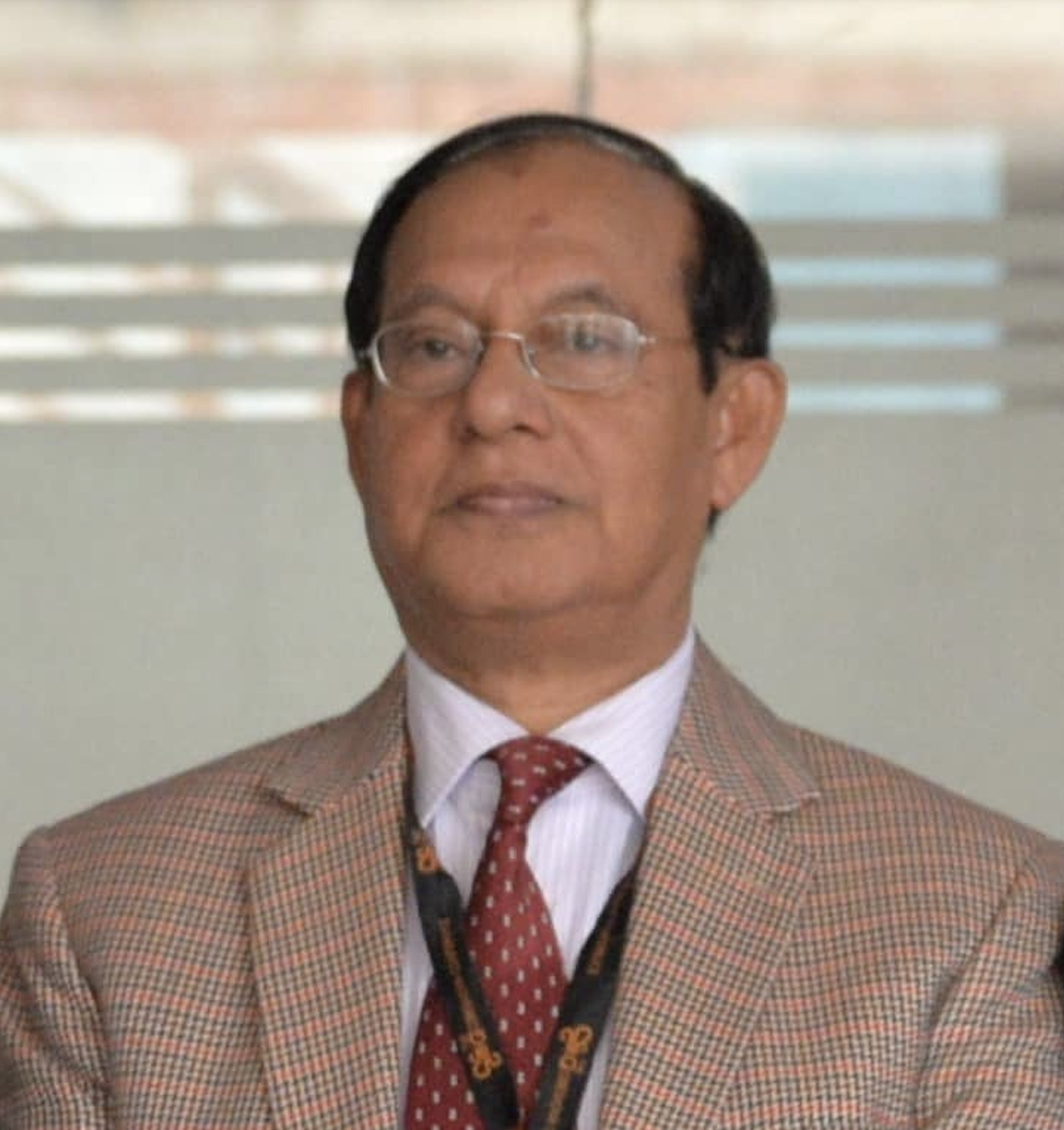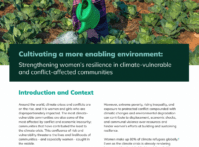-
The Arc | Dr. Mizan Khan on Loss and Damage and Bangladesh’s Role as a Climate Adaptation Leader
May 17, 2024 By Wilson Center Staff In today’s episode of New Security Broadcast, ECSP’s Claire Doyle and Angus Soderberg speak with Dr. Mizan Khan, Technical Lead at the Least Developed Countries Universities Consortium on Climate Change. Dr. Khan was formerly the Deputy Director at the International Center for Climate Change and Development (ICCCAD), a research institute based in Bangladesh.
In today’s episode of New Security Broadcast, ECSP’s Claire Doyle and Angus Soderberg speak with Dr. Mizan Khan, Technical Lead at the Least Developed Countries Universities Consortium on Climate Change. Dr. Khan was formerly the Deputy Director at the International Center for Climate Change and Development (ICCCAD), a research institute based in Bangladesh.Dr. Khan describes Bangladesh’s vulnerability to climate change and its unique role as an adaptation leader. He also discusses what he believes the core principles of the Loss and Damage Fund should be, and the legacy of the late Dr. Saleemul Huq.
In today’s episode of New Security Broadcast, ECSP’s Claire Doyle and Angus Soderberg speak with Dr. Mizan Khan, former Deputy Director at the International Center for Climate Change and Development (ICCCAD), a research institute based in Bangladesh.
Dr. Khan describes Bangladesh’s vulnerability to climate change and its unique role as an adaptation leader. He also discusses what he believes the core principles of the Loss and Damage Fund should be, and the legacy of the late Dr. Saleemul Huq.
Select quotes from the podcast are featured below:
On Bangladesh’s acute vulnerability to climate impacts
“I regard Bangladesh as the ground zero of vulnerability. Its global ranking in terms of vulnerability stands at seventh in some assessments. But in terms of the total population that is impacted, Bangladesh can be regarded as the most vulnerable country in the world. This is because Bangladesh is 65 times smaller than America, yet houses almost exactly half of the American population. You can imagine what kind of pressure that puts on our environmental resources.”
“In particular, Bangladesh’s southern coastal belt is extremely vulnerable. We have huge displacements because of climate disasters from floods and cyclones, which Bangladesh is trying to tackle.”
On Bangladesh’s blueprint for adaptation
“Bangladesh is the first country to start its own domestically resourced climate change trust fund. The Bangladesh government has already invested over $430 million in the last decade. And now, Bangladesh has spent more than 1% of our GDP, which comes to 6% or 7% of our annual development plan. And we have already funded more than 800 projects through our climate change trust fund.”
“Our government has built about 12,000 cyclone and flood shelters, to accommodate people when disaster hits. And Bangladesh is now regarded as an ‘adaptation capital,’ in the words of Ban Ki-moon, former UN Secretary General. And our people are extremely resilient, and social capital also is very strong in Bangladesh, which are key assets. So, Bangladesh has many lessons which other countries are learning now.”
On the establishment of Loss and Damage Fund and where it stands today
“COP28 has operationalized a Loss and Damage Fund with about $800 million. And that started with the pioneering pledge of the UAE COP presidency and then other countries, but this is just a measly amount compared to the billions and trillions needed. But this is just the beginning, as now the World Bank has agreed to serve as the interim trustee with a board. The challenge is how to run this fund so that the most vulnerable countries and communities can get access to the funds they need. This kind of access still needs to be worked out. But I am happy to say that Bangladesh’s leadership was extremely active in establishing this Loss and Damage Fund.”
“There are many challenges in operationalizing and functioning of the fund because the challenges low-income and [Least Developed Countries] (LDCs) face are not resolved. But at the next COP and in future COPs, I think that those issues of concern, of access and quick delivery, will take precedence because loss and damage is happening every day, every month, and every year.”
On applying the principle of climate justice to the Loss and Damage Fund
“For the LDCs and low-income countries, climate justice is our core principle. And that principle, in fact, is inscribed in article 3.1 of the [United Nations Framework Convention on Climate Change], which talks of equity and common but differentiated responsibility based on respective capabilities. So, if we are ready to operationalize this principle, then climate justice can be ensured. Implicitly, this principle also recognizes the application of the polluter pays principle indirectly through the common but differentiated responsibility clause. So, I believe climate justice is the core principle under which climate finance can actually be operationalized to reach local communities.”
On why global adaptation efforts need to be considered a public good
“Our national adaptation plan that we have submitted last year to UNFCCC mentions the need for $230 billion by 2050, which comes to about $8 billion a year. We are getting less than $500 million from international support. So, this is really sparse support compared to our needs. And this is not just true for Bangladesh. This is true for all the LDCs and low-income countries. More money goes to mitigation than adaptation, but for our countries, adaptation is the prime priority. But even for the LDCs and low-income countries, more than 50% of money goes to mitigation. This is a double or triple injustice because this should not be our priority, as we are nano-emitters.”
“Mitigation is often referred to as a global public good, but not adaptation. When in fact it is actually the opposite, as I have argued in my books and a number of articles. If you think on the scale of more than 100 countries including India and Pakistan, which are also very vulnerable, when they go down the spiral of development, then the whole global economy and financial system, as well as global security, will be impaired. So, adaptation actions need to be considered as a global public good.”
On Dr. Saleemul Huq’s legacy
“He was a giant in this area. So, [his passing] was a loss not just for Bangladesh and for ICCCAD, but also for the global community. He had a passion for climate change issues, particularly adaptation, as well as loss and damage that helped to spur international action for the last decade. And we plan to carry on his legacy as an institution builder.
Souces: UNFCCC
Topics: adaptation, climate change, climate finance, community-based, cooperation, development, environment, environmental justice, environmental security, extreme weather, funding, human rights, international environmental governance, meta, New Security Broadcast, risk and resilience, security, The Arc (Podcast Series)
 A Publication of the Stimson Center.
A Publication of the Stimson Center.






